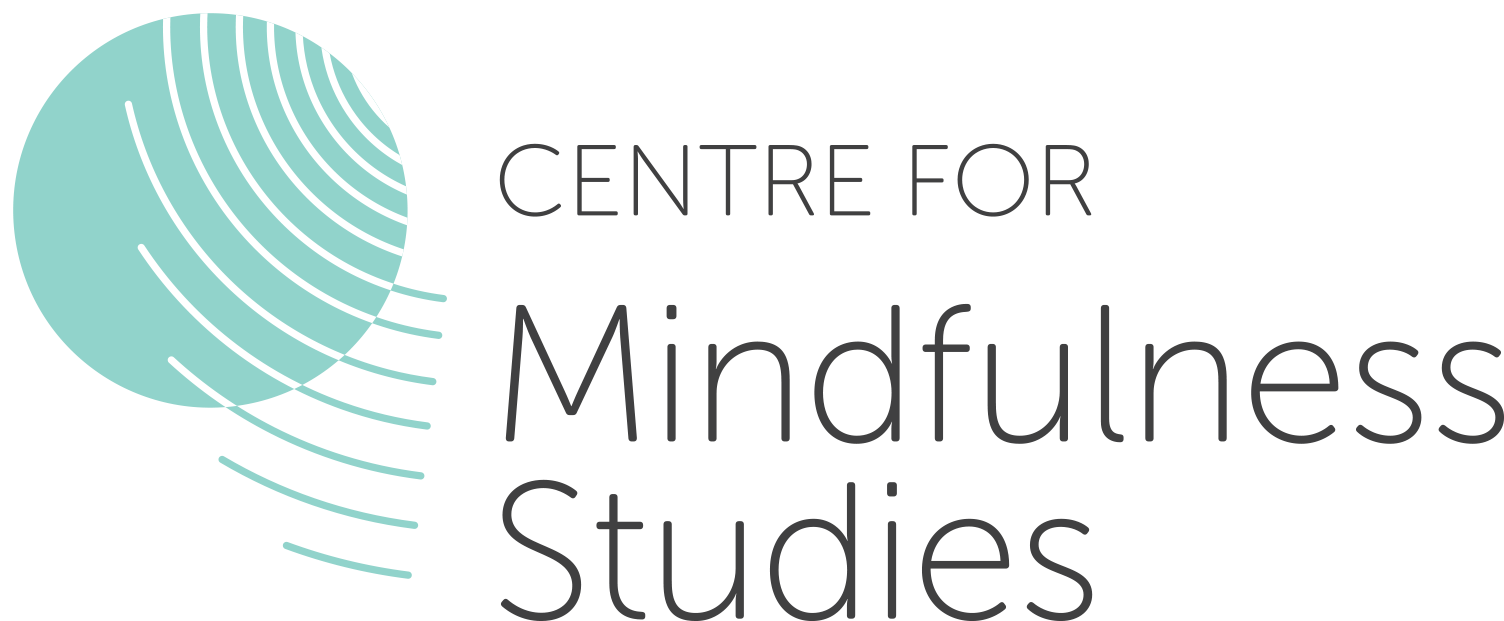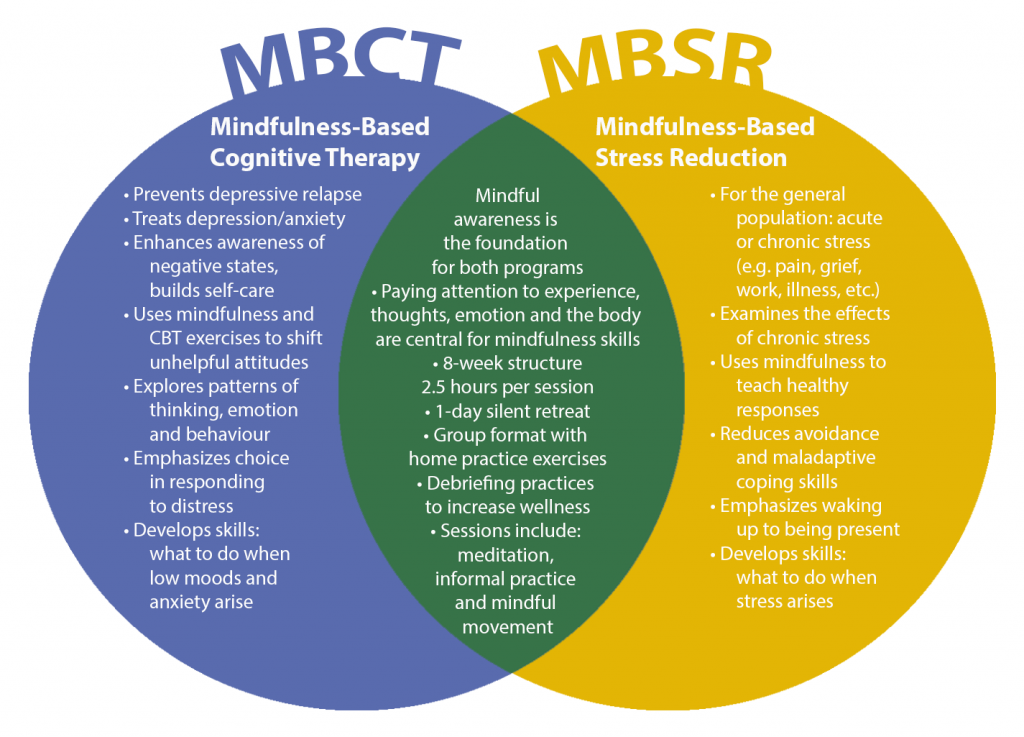Understanding Mindfulness-Based Programs (MBPs)
MBCT, MBSR, and MSC Similarities
- The program foundation is the practice of mindfulness
- Participants will develop awareness by paying attention and noticing
- 8-week structure, 2.5 to 3* hours per weekly session
- 4-6 hour silent retreat (highly recommended)
- Group format with individual home practice and exercises each week
- Program is built around facilitator-led discussion and inquiry
- Sessions include formal meditation practices and mindful movement exercises
*MBCT & MBSR have 2.5-hr weekly sessions whereas MSC has 3-hr weekly sessions
MBCT, MBSR, and MSC Differences
| MBCT | MBSR | MSC |
| Mindfulness-Based Based Cognitive Therapy | Mindfulness-Based Stress Reduction | Mindful Self-Compassion |
| Designed to prevent depressive relapse, particularly those who deal with chronic or acute depression and/or mild-to-moderate anxiety | Designed for the general population, particularly those who deal with chronic stress resulting from a variety of physical / psychological illnesses | Designed for the general population, particularly those who deal with perfectionism or stress from mental illnesses |
| Looks at the ‘illness’ of depression / anxiety and asks – how mindfulness can help you stay well | Looks at the stress of living, especially with a chronic illness, and how it affects our experience | Looks at the self-critic and difficult emotions, and how self-compassion can help you stay well |
| Allows an accumulation of mindfulness experience to give insight about the negative mind states associated with depression / anxiety | Allows an accumulation of mindfulness experience to suggest different ways to respond to suffering | Combines the skills of mindfulness and self-compassion to build emotional resilience |
| Can shift the relationship to suffering by recognizing patterns of mind and emotion | Can change the relationship to suffering by turning towards pain and difficulty | Can change the relationship to suffering by learning self-compassion skills |
| Emphasizes the element of choice in how to respond to states | Emphasizes waking up to the possibility of being present with what is here | Emphasizes “getting out of your own way” by increasing awareness |
MBCT, MBSR, & MSC Themes
| MBCT Themes | MBSR Themes | MSC Themes | |
| Orientation & Interview | Group Orientation & One-On-One Intake Interview | Group Orientation & One-On-One Intake Interview | Group Orientation & One-On-One Intake Interview |
| Session 1 | Awareness & Automatic Pilot | Introducing Mindfulness Meditation: Doing to Being | Discovering Mindful Self-Compassion |
| Session 2 | Living in Our Heads | Perception & Knowing Are Different | Practicing Mindfulness |
| Session 3 | Gathering The Scattered Mind | There is Pleasure & Power in Being Present | Practicing Loving-Kindness |
| Session 4 | Recognizing Aversion | Stress Reactivity | Discovering Your Compassionate Voice |
| Session 5 | Allowing / Letting Be | Stress, Mindful Awareness & Responding | Living Deeply |
| Session 6 | Thoughts Are Not Facts | Stressful Communications | Meeting Difficult Emotions |
| Session 7 | How Can I Best Take Care Of Myself? | How Do I Best Take Care Of Myself? | Exploring Challenging Relationships |
| Session 8 | Endings Are Beginnings | Endings Are Beginnings | Embracing Your Life |
| Silent Retreat | 6 hours of facilitator-led practices, participants remain in silence | 6 hours of facilitator-led practices, participants remain in silence | 4 hours of facilitator-led practices, participants remain in silence |

